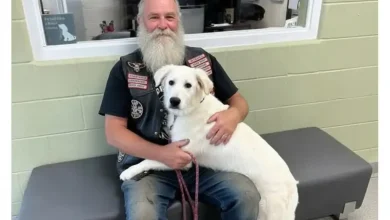
The Dinner That Taught Me to Stand Up for Myself—Without Losing a Friend
Boundaries, Friendship, and a Lesson Over Steak
When Mia invited me to dinner at an upscale steakhouse, I felt both excited and uneasy. I missed our long talks, but I also knew that restaurant—the kind with no prices on the menu and bottled water you can’t pronounce.
“Mia, that place is a little out of my budget,” I told her gently. “I’ve got rent and car repairs this month. But I’d love to see you.”
She laughed. “Don’t worry! We’ll keep it simple. Order whatever you want—no pressure.”
I believed her.
That Friday, I showed up early, nervous but happy. The place smelled like butter and oak—pure luxury. I’d chosen my best dress and most forgiving heels. Mia arrived glowing, hugged me tight, and said, “It’s been forever! You look amazing!”
We ordered drinks—water for me, wine for her.
Then came the menu. I scanned the prices: salads for $19, steaks pushing $60. I smiled and said, “I’ll just have the salad, maybe some bread too.”
“Perfect,” Mia said cheerfully. “Ribeye for me, truffle fries, asparagus—why not? We deserve this!”
We laughed and caught up on life. She told me about her big work win; I told her about saving for grad school. Still, I couldn’t shake the quiet anxiety as I did mental math between bites of lettuce.
When the check came, Mia said easily, “We’ll just split it.”
My heart dropped. Before I could speak, the waiter placed two separate checks on the table.
“Oh,” Mia said, surprised. “You didn’t have to—”
“I called earlier,” I said calmly. “Asked them to split it ahead of time. Just wanted to avoid any confusion.”
She blinked, then blushed. “You could’ve told me.”
“I did,” I said softly. “A few times.”
She looked down, then nodded. “You’re right. I just didn’t listen.”
The moment grew quiet—honest, not tense.
“I guess I assumed we’d do what we always do,” she said. “I didn’t think about how that might feel for you.”
“It’s okay,” I said. “I just wanted to enjoy our time without stressing.”
She smiled. “Fair enough. Next time, tacos?”
“Tacos sound perfect.”
We laughed again, and the heaviness lifted.
As we paid, Mia reached across the table. “Thank you,” she said.
“For what?”
“For not embarrassing me. You could’ve made it awkward—but you didn’t. You handled it with grace.”
I smiled. “So did you.”
Outside, under the soft glow of streetlights, she hugged me tight. “You taught me something tonight,” she said. “Boundaries don’t have to be mean.”
That stayed with me.
Later, lying in bed, I realized the dinner hadn’t been about money—it was about voice. About learning to speak up without guilt.
For years, I’d been a people-pleaser—saying yes when I wanted to say no, shrinking myself to keep others comfortable. But calling the restaurant ahead of time wasn’t rude. It was respectful—to both of us.
Because real friendship can hold honesty.
Since then, Mia and I still meet up. Sometimes she treats, sometimes I do, sometimes we split. The difference is—we talk about it first. No guilt. No guessing. Just understanding.
That night taught me something lasting: boundaries aren’t walls; they’re bridges.
They invite honesty, respect, and care to coexist.
The dinner wasn’t about the bill—it was about learning to say, “This is what I need,” and trusting that true friendship won’t flinch.
I left that restaurant not just full—but free.




